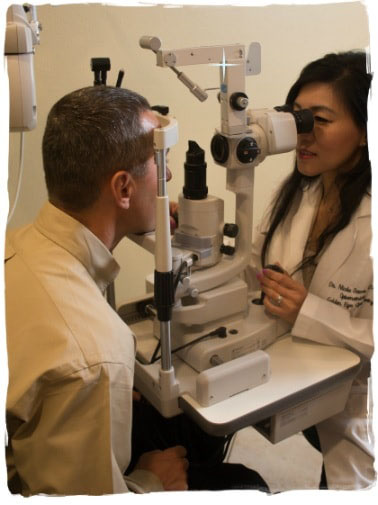As February unfolds, it brings with it an opportunity to shine a spotlight on a critical aspect of our well-being—our vision. Designated as Low Vision Awareness Month, this period encourages us to delve into the nuances of low vision, its impact, and the importance of awareness and proactive care.
Understanding Low Vision
Low vision refers to a condition where individuals face significant visual impairment, even with the use of regular glasses, contact lenses, medication, or surgery. Daily tasks that were once routine, such as reading, cooking, or recognizing faces, become challenging for those grappling with low vision.
The Numbers Tell a Story
Current statistics reveal that 4.2 million Americans aged 40 and above are visually impaired, with 3 million experiencing low vision. Looking ahead to 2030, as the last wave of baby boomers turns 65, these numbers are projected to escalate to 7.2 million Americans with visual impairments, out of which 5 million will be dealing with low vision.
Risk Factors for Low Vision
Understanding the risk factors associated with low vision is crucial for early intervention and preventive measures. Some controllable risk factors include:
- High Blood Pressure: A risk factor for both heart disease and low vision.
- High Cholesterol: Linked to vascular issues that can impact vision.
- Obesity: A factor that contributes to various health concerns, including visual impairment.
- Smoking: Known to increase the risk of both heart disease and eye-related issues.
On the other hand, uncontrollable risk factors include age, family history, gender, and race.
Defining Low Vision: Common Causes
Several conditions contribute to low vision, and understanding them is key to early detection and management:
- Macular Degeneration: Affecting the retina, this condition leads to blurry and uneven vision, particularly in the center of the eye.
- Diabetes: Diabetes can cause changes in eye blood vessels, leading to conditions like diabetic retinopathy, a common cause of blindness in adults.
- Glaucoma: Damaging the optic nerves, glaucoma can result in vision loss and blindness if not diagnosed and managed in its early stages.
The Role of Vision Rehabilitation
For those living with low vision, vision rehabilitation becomes a crucial aspect of adapting to visual impairment. It includes specialized training and support to maximize the use of remaining vision and enhance overall independence.
Eye-Opening Statistics
- An estimated 10 million Americans are currently blind or visually impaired.
- Visual impairment ranks among the top 10 disabilities in the U.S.
- The anticipated doubling of blind or visually impaired Americans over the next few decades underscores the urgency of awareness and intervention.
Promoting Awareness and Action
Low Vision Awareness Month serves as a poignant reminder to prioritize our vision and encourages individuals to:
- Schedule Regular Eye Check-ups: Routine eye examinations can detect potential issues early on, enabling timely intervention.
- Understand Risk Factors: Awareness of both controllable and uncontrollable risk factors empowers individuals to take proactive measures.
- Encourage Others: Spread awareness about the importance of vision care and motivate loved ones to prioritize their eye health.
As we navigate through February, let's embrace the opportunity to learn more about low vision, foster awareness, and encourage a proactive approach to eye health. Together, we can contribute to a future where vision impairment is minimized, and individuals with low vision lead fulfilling and independent lives.
If you have concerns now or any time of year, contact us for an appointment and to learn more about your vision. You’ll get peace of mind that comes from knowing you are taking proactive measures to protect your health and vision, and if needed, the adaptive tools you need to resume your favorite activities and routines.
Make your appointment today
To make your appointment, simply give us a call (760)-948-3345 or
or
Due to COVID-19 safety protocols, all eyewear services are currently by appointment only. Please call to make an appointment.
At Golden Eye Optometry, we view good vision care as front line protection at every age. A routine eye exam can detect more than poor vision. It can shed early light on glaucoma, macular degeneration, cataracts and diabetes.